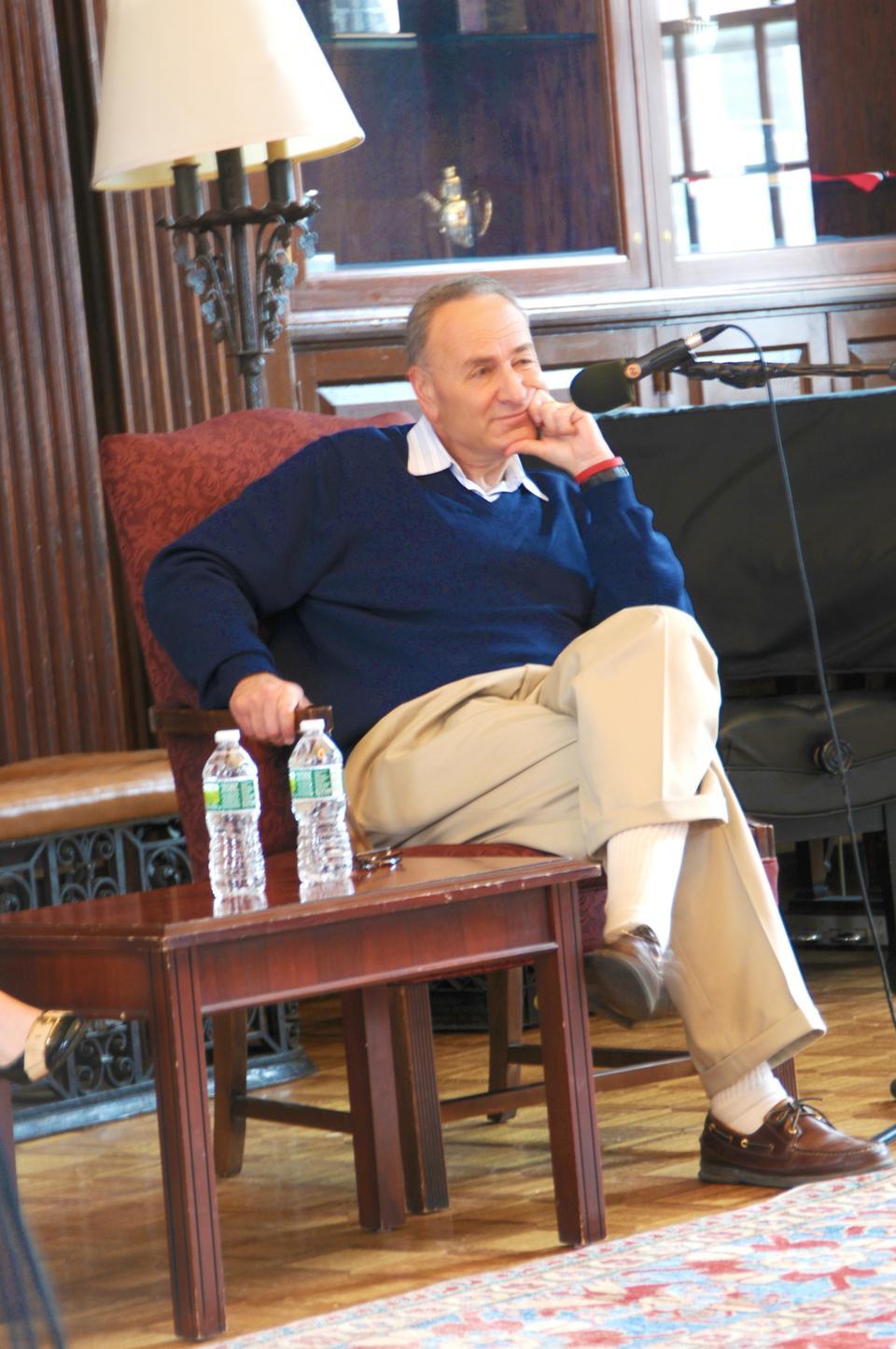
News
When Professors Speak Out, Some Students Stay Quiet. Can Harvard Keep Everyone Talking?

News
Allston Residents, Elected Officials Ask for More Benefits from Harvard’s 10-Year Plan

News
Nobel Laureate Claudia Goldin Warns of Federal Data Misuse at IOP Forum

News
Woman Rescued from Freezing Charles River, Transported to Hospital with Serious Injuries

News
Harvard Researchers Develop New Technology to Map Neural Connections
Five Harvard Grads Running for Senate in 2016

UPDATED: October 19, 2016, at 3:22 p.m.
With 34 U.S. Senate seats up for grabs in the midst of a tense 2016 election season, Harvard boasts more than a few contenders with hats in the ring.
In total, five Harvard alumni—four of them incumbents–have declared their candidacy for the Senate this year. Thirteen current U.S. senators can claim ties to Harvard, bearing degrees from the College, the Law School, or the Kennedy School. Pending the results of this election, that number could rise to 14 after Nov. 8.

“I don’t think it’s surprising,” professor of government and sociology Theda Skocpol said of Harvard’s representation in the Senate. “We know Harvard, along with a few other institutions, are elite colleges that set people up for success.”
The Harvard graduates running for reelection to the Senate are Democratic Senator Richard Blumenthal ’67 from Connecticut, Republican Senator Michael D. Crapo—a Law School graduate from the Class of 1977—from Idaho, Democratic Senator Charles E. Schumer ’71 from New York, and Republican Senator Patrick J. Toomey ’84 from Pennsylvania.
Democratic candidate Russell D. Feingold–who graduated from HLS in 1979–from Wisconsin is also running for reelection to the Senate, though not as an incumbent. Feingold served as Wisconsin’s senator from 1993 to 2011 before suffering a defeat in his 2010 campaign for reelection at the hands of Oshkosh businessman Republican Ron Johnson.
FiveThirtyEight, a website known for its elections predictions, currently gives Blumenthal, Crapo, Schumer, and Feingold high chances of winning their individual Senate races: 98.8 percent, 98.9 percent, 99.9 percent, and 91.1 percent, respectively. According to the site, the Senatorial races in Connecticut, Idaho, and New York are unlikely to play a significant role in deciding whether the Democrats or Republicans gain a majority of the chamber–Wisconsin, however, may.
This year, more than twice as many Republican-held Senate seats are up for election as Democratic seats: 24 as opposed to 10, allowing Democrats to go on the offensive in their quest to take back the majority. Democrats must gain a net five additional seats to win numerical control of the Senate. If Democratic presidential nominee Hillary R. Clinton gains the White House, however, Democrats need nab just four, given that the Vice President’s vote can serve as a tiebreaker.
Wisconsin, where Feingold is running against incumbent Johnson, is one of the states likely to switch hands this election, and could help Democrats seize a Senatorial majority. FiveThirtyEight ranks Wisconsin’s “tipping-point chance,” or the probability that the state’s Senate race will decide whether Democrats or Republicans attain a majority, at 2.9 percent.
Lee M. Miringoff, the director of the Marist College Institute for Public Opinion, said he agreed with FiveThirtyEight’s assessment of Wisconsin, deeming it “a pretty pivotal state” for both political parties. He added that Democrats are “banking on” Feingold, as a former senator to reclaim his seat.
“That would be one of the four seats Democrats would have to pick up, assuming they win the presidency,” Miringoff said. “It would be very hard for the Democrats to get to 50 [Senate seats] without picking up a Wisconsin seat and flipping that back to the Democratic column.”
Miringoff disagreed, however, with FiveThirtyEight’s confident projection of a Feingold victory. Referencing polling data from RealClearPolitics, which gives Feingold a slim advantage over Johnson, Miringoff said he thinks Feingold has only a “single digit lead.”
“Although FiveThirtyEight might have it at 91 percent, it’s probably closer than that,” he said. “Something that’s within the margin of error is something that you can’t count on at this point. I think it’s still competitive.”
Other senators with Harvard degrees not currently up for reelection include Tim Kaine, an HLS alum and Clinton’s pick for vice presidential running mate, and Law School graduate Ted Cruz, who ran for the 2016 Republican nomination before losing to Donald J. Trump.
–Staff writer Hannah Natanson can be reached at hannah.natanson@thecrimson.com. Follow her on Twitter @hannah_natanson.
This article has been revised to reflect the following correction:
CORRECTION: October 19, 2016
A previous version of this article and its accompanying headline incorrectly stated that four Harvard alumni were running for United States Senate this year. In fact, five are.
Want to keep up with breaking news? Subscribe to our email newsletter.
